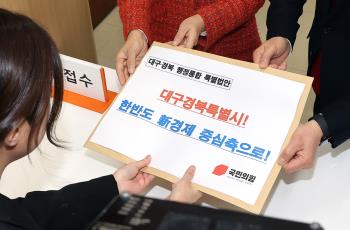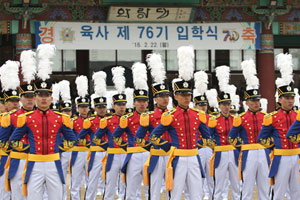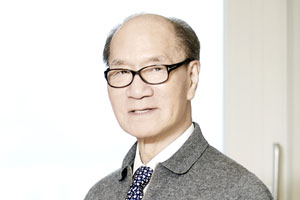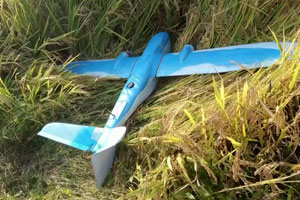
- 워싱턴DC 연방의회 의사당 건물에 밤늦도록 불이 켜져 있다. 사진=AP 연합뉴스
1973년에 창설된 민간 연구기관인 미국 워싱턴D.C 소재 <한미문제 연구소(Institute for Corean-American Studies)>가 최근 미 의회 의원 및 보좌관들을 상대로 실시한 여론조사에 의하면 응답자의 83.3%가 한미 상호방위조약에 의거한 미국의 한반도 안보 공약 상의 의무는 <북대서양조약기구 (NATO)>에 대한 의무와 동격으로 향상되어 있다고 믿는다고 대답했다.
그리고 응답자의 55.6%는 한미동맹 틀 속에서 거론되는 “핵무기 공유”의 개념은 NATO 국가들과의 “핵무기 공유”와 같은 수준이라고 대답한 반면 33.3%만이 이에 대해 이견을 표시했다.
응답자의 88.9%는 2017년 대한민국에 도입된 THAAD(고고도미사일방어체제) 포대를 이제는 전면적으로 실전 체제로 전환시켜야 한다고 주장했고 55.6%는 대한민국을 실질적으로 북한에 준하는 핵 보유국으로 간주하지 않는다고 답변했다. 40.0%의 응답자들은 대한민국이 “독자적인 핵무기 개발” 정책을 채택하는데 반대한 반면 38.3%는 대한민국이 “독자적 핵무기 개발을 해야 한다”는 입장을 밝혔다.
55.6%의 응답자들은 한미동맹의 틀 속에서 “전술 핵무기를 남한에 재배치하는 것을 지지한다”는 입장을 표명했으며 38.9%는 이에 반대했다. 이와 아울러, 61.1%의 응답자들은 한미 양국이 핵무기를 한반도 주변으로 전진 배치해야 한다고 주장했으며 27.8%는 이에 대해 반대 의사를 밝혔다.
66.7%의 응답자들은 최근 북한으로부터의 증강되는 핵 위협에 대한 대책으로 한미 양국이 선언한 “확장억지 전략”이 보다 보강된 안보 공약을 제공하는 것으로 평가했으며 반면 22.2%는 그러한 견해에 공감하지 않았다.
72.2%의 응답자들은 미국의 바이든(Joe Biden) 행정부가 최신 <국가안보전략 보고서>에서 북한으로부터의 위협을 강조하지 않고 이에 대한 외교적 노력을 소홀하게 언급한 데 대해 부정적으로 평가했다. 94.4%의 응답자들이 일본의 키시다 정권이 최근 일본의 방위비를 앞으로 수년 내에 종래의 GDP 1% 선으로부터 2% 수준으로 증가하려는 의도를 표시하는 것을 긍정적으로 평가했다.
77.%의 응답자들은 앞으로 대만 주변에서 군사 충돌이 발생할 때 대한민국이 대만, 미국, 일본 등 우방들과 힘을 합쳐야 할 것이라고 주장했다.
이 여론조사는 2022년 10월 9일부터 30일까지 우편의 방법으로 시행되었다.
다음은 영문 원본이다.
A twenty-second new poll conducted by the ICAS (Institute for Corean-American Studies) continues to identify issues surrounding the Korean Peninsula (KP) from a national security standpoint of the US.
Conducted to an ICAS audience on the Hill, 83.3% of the respondents believe that the U.S. obligations under the US-SK mutual defense treaty rise to the level of Article V of NATO. 55.6% think the US-SK Alliance ought to consider the 'nuclear-sharing' idea akin to the NATO style, while 33.3% do not.
88.9% of the respondents view that it is about time to make the THAAD battery fully operational since it was first introduced to SK in 2017, and 55.6% do not think SK is a de facto nuclear power in the eyes of NK.
50.0% of the respondents do not agree to a notion that SK ought to consider adopting an "indigenous nuke development" agenda, while 38.9% agree that SK ought to do so.
55.6% of the respondents believe that the US-SK Alliance should consider “reintroducing tactical nukes” to SK. 38.9% do not think so.
Furthermore, 61.1% of respondents believe that the US-SK Alliance should consider positioning nuke assets surrounding KP, while 27.8% disagree.
66.7% of the respondents are of the view that the Extended Deterrence Strategy recently declared by the US-SK Alliance against NK's nuclear threat assures a fortiori commitment. 22.2% do not think so.
72.2% of the respondents hold a negative assessment of the apparent fact that the current U.S. administration's National Security Strategy barely mentions NK's threat and any meaningful diplomacy.
94.4% of the respondents positively assess Japan's apparent motivation to increase its defense budget in the coming years to ~2% of its GDP from its current level of ~1%.
77.8% of the respondents agree that SK should join forces with the Allies (i.e., Japan, Taiwan, US) in case of Taiwan contingency.
The survey was conducted from October9, 2022 to October 30, 2022 via email with a moderate credibility interval. Supplemental graphic data are available on
글=이동복 북한민주화 포럼 대표













































